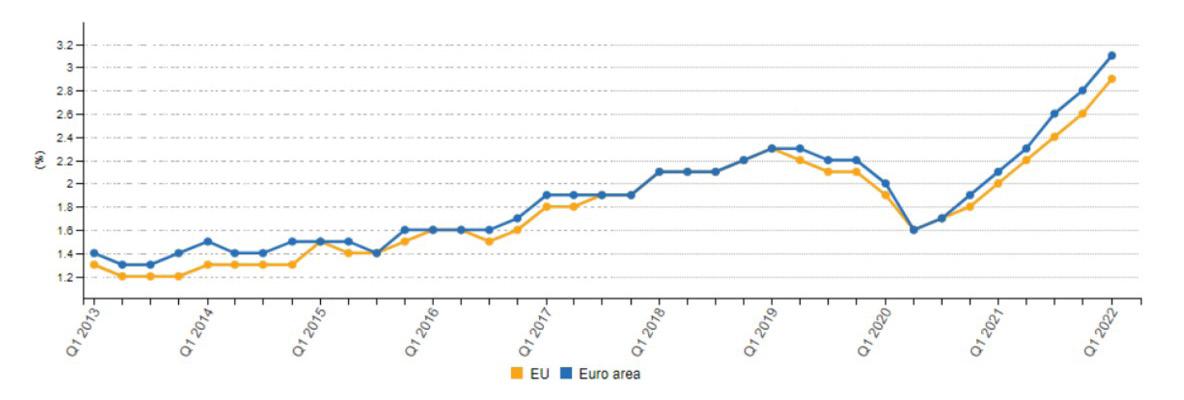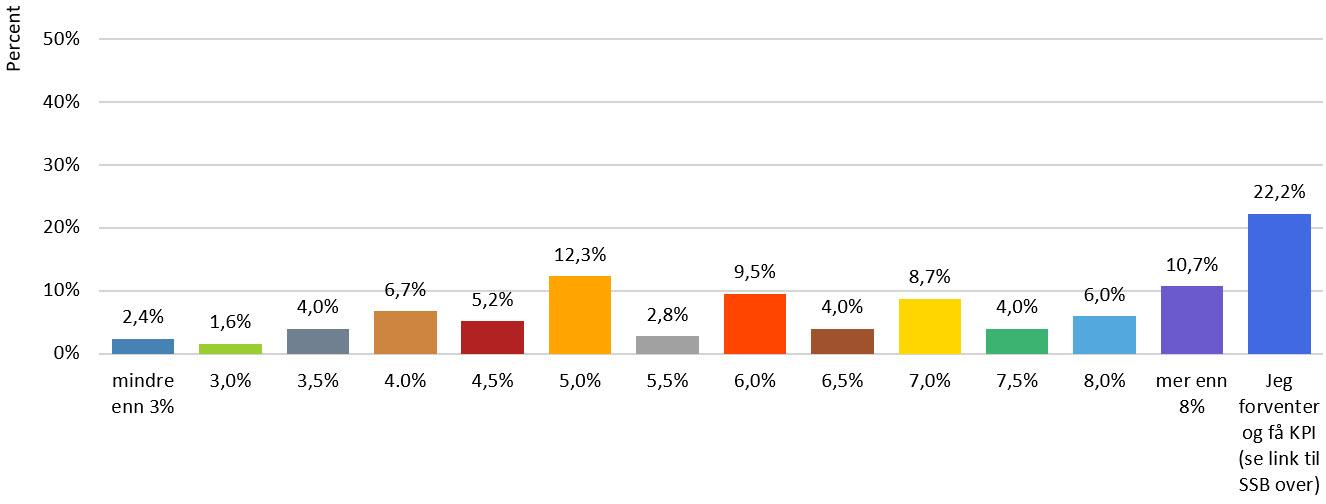
5 minute read
Salary negotiations 2023
from VEFF magazine 2 2022
by Veff
We have now started to prepare the salary negotiations for 2023. The negotiations will take place the first weeks of January. The negotiated salary adjustment will be effective from 1st of April 2023.
LIN BEATE KARSTEN, DEPUTY CHAIR VEFF
We will now share some of our reflections before the negotiations and a summary of the survey sent to all our members about a month ago.
− Based on the VEFF’s review report after the 2022 wage settlement, we see that 6.5%, which we received, helped close much of the gap in
DNV’s wage level. − We still believe that a gap exists. − In the wage settlement for 2021, which ended at 2%, we showed great moderation with a lot of uncertainty in connection with
Covid. − If we look at the consumer price index from 1.10.2021 to 1.10.2022, it was 7,5% (without energy index it is 5,9%), which also shows that our wage settlement in 2022 is likely to have given us a slight decline in real wages (the KPI has been updated after we sent out our survey).
PREPARATIONS FOR THE SALARY NEGOTIATIONS 2023:
− We demand that employees get their share of DNV’s very good results also in terms of wages and pensions. We believe that the global macro-economy shows great uncertainty, but the economy in
Norway is growing steadily even with high electricity prices. − If we look at the 4 criteria’s that should be the starting point for the negotiations, there is nothing that indicates that we need to show moderation, except for uncertainty regarding the war in Ukraine. DNV has introduced all the sanctions imposed and taken the financial consequences of this in budget 2021. Norway is rather seen as one of the “profit-making countries”.
We profit from the war, making it difficult to accept arguments that impose moderation because of uncertainty. − The government’s budget proposal to increase employers’ national insurance contributions by 5% (on salaries above 750,000) will have a direct impact on budgets
In DNV Norway in the order of
NOK 12.5 million (average salary in DNV Norway is 875,000). − Profit share is a pure risk model, if the company earns little the employees get nothing, if we earn a lot the employees get their share of the profit. The model we have now was implemented in 2021 and we do not want any changes to the model. − One risk with showing moderation, is that people leave the company, and it becomes extremely difficult to recruit the expertise we need, therefore we need to be competitive on salary. − Underlying trend: Europe lacks labor (see graph below)
Underlying trends: Europe is short of labour
Figure 1: Share of unfilled positions in EU countries and the Eurozone 2013-2021 (Q1 - 2022)

SALARY SURVEY
In October we sent out a survey to all our members and we received a lot of valuable feedback from 247 members.
The image below shows that most of you have an expectation of a good outcome of the salary negotiations next year. The question was: What is your realistic expectation to the salary raise in 2023:
We also asked you to provide us with any input to the negotiations in a free text question. Approximately 50 of our members provided us with a lot of valuable input that will be used in the negotiations. Below you can read some of them:
«I don’t think DNV will make any attempt to maintain our purchasing power. The whole point of the interest rate increases is that we will have poorer purchasing power. The outlook for 2023 is higher unemployment and thus DNV does not need to secure labor unlike the situation just a year ago.”
«This year I got a bit over 5%, which was good as you expected a KPI of just over 3%, i.e. I should get about 2% more than the KPI, i.e., a real wage increase. That didn’t happen. as of September 2022, the KPI is at 6.9%. I expect a real wage decline of about 2%, i.e., a difference of 4% from the expected wage settlement. I would like to “get” these 4% back in next year’s wage settlement. If this year’s and next year’s CPI is 7%, then I hope for a wage settlement on mine. 7% + 4% = 11%.”
«As a manager, I would like to see a clearer guideline on the distribution of salaries between experienced and younger employees. If it is still the case that salary category 6-7-8 needs a boost, then it would be nice to be able to get guidelines on how much these should have, so that it is not assessed differently from BA to BA and department to department. By the way, I am very pleased with VEFF! :)»
«I expect DNV to recognize inflation and ensure (at least) increased purchasing power for all its groups of employees. We Care, We Dare, We Share »
«DNV is not known for their high salaries. They need to raise it a lot now to make sure people do not leave if they try with the normal 2-3%. Everything is more expensive. It is not enough to offer other items around the salary.»
«The budgeting for 2023 calculates a large increase in turnover due to inflation-adjusted prices, but only a small increase in EBITA above this year’s level, which is likely to be very good! It is therefore difficult to argue for moderation with difficult times, when budgeting for good times. »
«I have checked 5% and by that I do not mean the total frame, but the % that I think it must be realistic for me personally to get as support personnel. Support personnel at Høvik have always been provided with only crumbs. I have the impression that those who are employed in a similar position in the same department as me in other countries in Europe have higher salaries. I think there’s a reason why VEFF should investigate this. »
«We have probably had negative wage growth recently, while DNV delivers all-time high. »
If you have any questions or input to the coming negotiations, do not hesitate to contact the negotiation team or send an email to: veff@dnv.com









